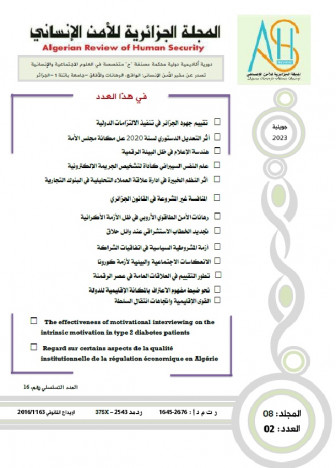The European Union in the Face of Internal Crises: Towards More Integration or the Beginning of Disintegration
DOI:
https://doi.org/10.59791/arhs.v6i1.2013Keywords:
: European integration, challenges of European unity, the future of the European Union, internal crises in the European UnionAbstract
The European Union was constructed as a supranational entity through a series of binding treaties. During the union’s evolution and trajectory, member states sought to harmonize laws and adopt common policies on several issues. So far ,they have established a customs union, a one market economy, a common trade policy, a common agricultural policy, and a common currency (the euro) used by nineteen member states. In addition to that, twenty two of the union’s member states and four countries outside the union have created the Schengen area, thus allowing individuals to travel without the need for a visa. Besides, the union also seriously endeavors to develop common foreign and security policies. Today, the European project attempts to continue to advance its agenda through its aspirations for crafting a unified constitution. However, the union has stumbled upon a host of political and economic pressures, including populist political parties opposed to federal institutions as well as a number of internal challenges, the most prominent of which is the expected withdrawal of the United Kingdom .The union faces also a number of prominent issues which include concerns about management of immigration pressure and the integration of new arrivals, dealing with resurgent Russia, combating the growing threat of terrorism ,etc. All these concerns demonstrate clear caution from taking further steps to deepen unity, and, hence, raise questions about the future shape and identity of the European Union.




